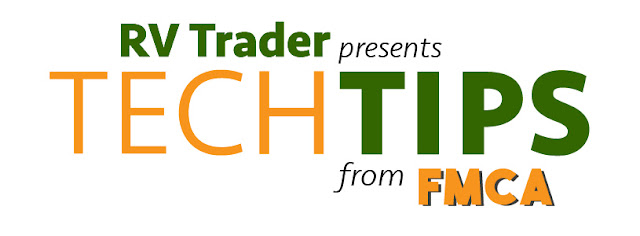Are you prepared for an emergency while RVing? Unfortunately, September’s history as an active month for hurricanes reminds RVers of the importance of being prepared. Read FMCA’s tips to prepare yourself for emergencies and natural disasters while RVing.
Evacuation Safety
Prepare two escape plans. One is for abandoning the RV when you need to get yourself and occupants out safely. The other is a plan for packing/driving the RV away when time allows you to evacuate ahead of a wildfire, hurricane, or other threatening situation.
Pro-Tip: FMCA’s blog offers resources for evacuating from a wildfire.
Escape Plan #1
In the first instance, have a plan for escaping the RV in a variety of scenarios (galley fire, engine fire, RV lying on its side or roof). What is the quickest way to escape? How will you make sure all occupants are accounted for? Will one specific person be in charge of helping pets get to safety?
In boating, a “ditch bag” is kept handy to grab just before one abandons ship into the water or a life raft. Prep your own “ditch bag” to grab in case of RV disaster.
Pro-Tip: In your grab-and-go bag, consider including copies of important documents such as insurance policies, driver’s licenses, phone numbers, and credit cards.
Escape Plan #2
In the second instance, consider how you would need to evacuate the RV from a location.
- A few points to think about as you form your plan:
- How would you handle removing the electric, water, and sewer hookups?
- If you drive a motorhome, consider if you’d have time to connect the towed vehicle.
- How long does it take you to retract the awning(s), slide-out(s), and leveling jacks for a quick getaway?
- If you or your driving partner is incapacitated, can the other person safely pack up the RV and drive you to safety?
- Do you have a reliable AM/FM radio or weather radio to stay informed of the latest weather or road condition updates? Remember that you may lose internet connectivity in an emergency or extreme weather situation.
- Do you have a Plan B for dealing with unexpected delays such as a stuck slide-out or sticky awning?
Consider making an “evacuation checklist.” Decide what items absolutely must be taken care of before you can safely move the RV and what can be eliminated, sped up, or modified.
Pro-Tip: On your evacuation checklist, list a family member or friend that you could call to let them know your emergency evacuation plans. This person can then alert other loved ones that you have safely evacuated.
We hope you never find yourself in an emergency situation while RVing. You can’t predict the future, but you can help prepare yourself and your family by thinking about “What if?” scenarios.
FMCA RV Club brings you this monthly tip to Enhance Your RV Lifestyle. FMCA delivers RV know-how to its members. Join today and save $10 — a special offer for RV Trader readers. Learn more at https://join.fmca.com/trader18.
This information is for educational purposes. FMCA shall not be responsible nor retain liability for RVer’s use of the provided information. Prior to making any RV service decision, you are advised to consult with an RV professional.






0 Responses
The article is wonderful and meaningful. I have been looking for this article for a long time. Thank you for sharing this extremely useful information. In addition, my party has the following relevant information:
besttoolsadvisor
quiet a generator
quiet generator portable
quiet generator for camping
box for generator quiet
quiet dual fuel generator
super quiet inverter generator
best quiet inverter generator
Generator
generator for house
Just trying to let RV trader people know that search rvs queries are not working properly. All RVs between 1 and 50 feet return less than 3000 hits? My three saved searches that yesterday returned dozens to hundreds now return zero to four hits. Database/stored procedure update recently?